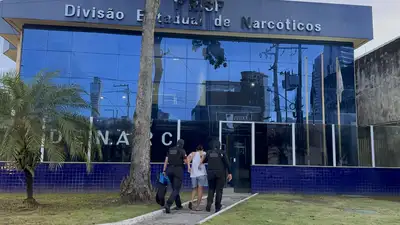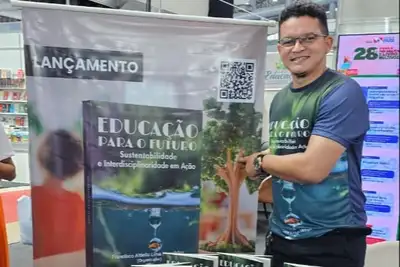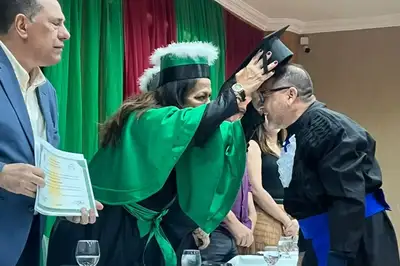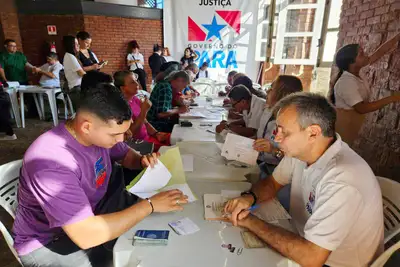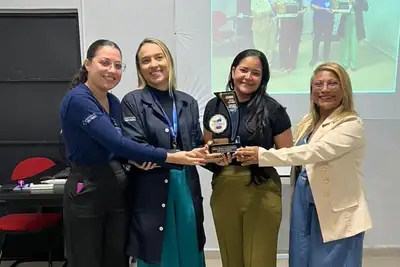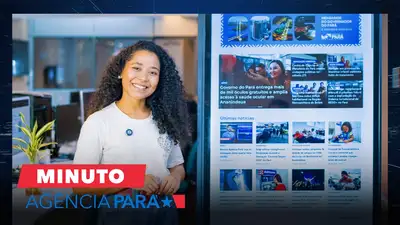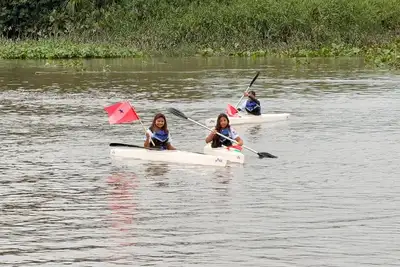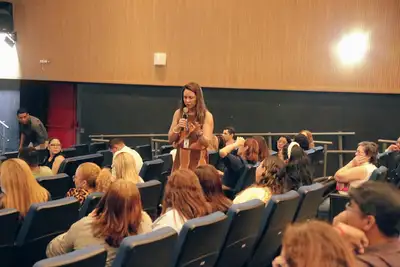Governor highlights the pioneering nature of the Pará Sustainable Cattle Raising program in Brazil
The head of the Executive, Helder Barbalho, met with representatives from the meat industry, including entrepreneurs, cattle ranchers, academia, and NGOs
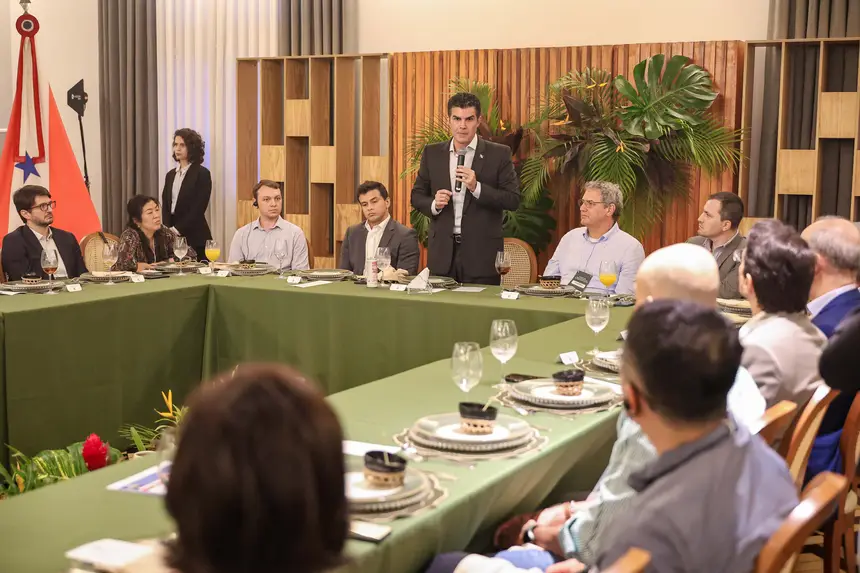
The governor of the State, Helder Barbalho, received, on Monday (7), at the Government Palace in Belém, representatives from the meat industry, including entrepreneurs, cattle ranchers, representatives from academia, and NGOs, in a movement that reinforces the sector's support for the Pará Sustainable Cattle Raising program, a pioneering initiative for the development, integrity, and traceability of the Pará herd in Brazil.
The governor welcomed participants of the "Expedition to the Sustainable Meat and Leather Market in Pará." Organized by The Nature Conservancy Brazil (TNC Brazil), within the framework of the Pará government program, the event, which will continue until this Wednesday (9), aims for key sector actors to understand the objectives, goals, and results already implemented, in a movement that, according to the state government, reinforces that the rural producer is a fundamental part of the solution and the transformation being proposed.
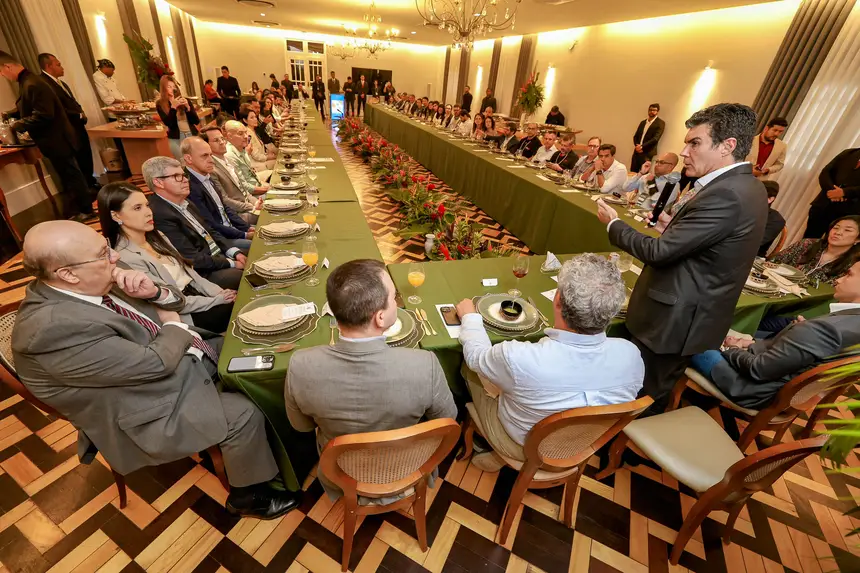
“We need to understand a point that I want you to take as the message: we will only be able to reduce deforestation, we will only be able to meet our climate ambitions, if we support good practices that bring about behavioral, cultural, and economic change by valuing those who adhere to sustainable strategies in the Amazon,” said the governor to the group of sector representatives.
Helder Barbalho added: “I must also highlight the relevance of the market, through wholesale and retail, which completes the circuit from those who produce to the product's offer to the consumer.”
In providing a brief history of the Pará government's initiatives aimed at sustainable cattle raising, the governor reinforced the state administration's effort to promote policies that encourage changes in land and forest resource use. “Since 2019, we have sought to work on alternatives that could, first, implement the green economy, implement strategies that could generate green jobs, while also changing the conception of land use with low-emission initiatives. From this, we have implemented a portfolio of initiatives, particularly in the vocation of food production, on one hand expanding the cultivation of crops that can reconcile food production with labor demands and restoration for the reconstitution of degraded areas.”
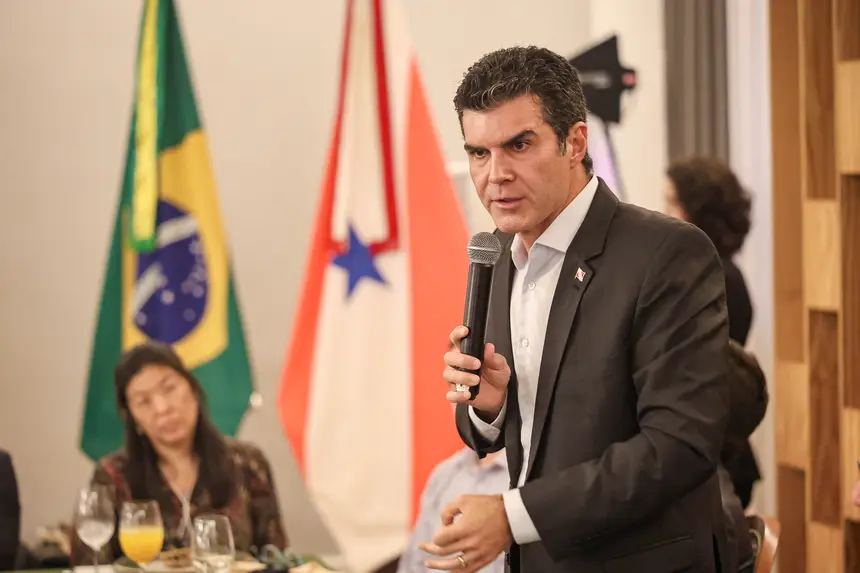
“We are anticipating a natural market demand for productive integrity, which can allow us, from the meat industry to the consumer, to demonstrate that production in the State of Pará has environmental responsibility,” said the governor.
Path to sustainability
The governor emphasized the history of discussions focused on sustainable cattle raising in Pará, within the framework of the state government. “Since 2020, with the Green Seal, our first initiative, it has been 5 years of discussions, public hearings, dialogues, and we have arrived here today with a solid public policy, in which we have had significant and relevant adherence from producers.”
“We have encouraged, at the institutional level, that the Brazilian government can support new meat industry plants to be enabled, based on these good protocols and procedures, for the opening of international markets, to stimulate this movement to strengthen and value the meat industry, aligned with this strategy and, of course, attract consumption,” said Helder.
“Those who think that leaving the Amazon, as a sign of combating environmental illegalities, is the correct strategy are mistaken. No, it is not to leave here. It is to make a choice for what is right and to value what is right so that good examples can generate conviction and the movement of adherence from those who are still skeptical that this is a necessary, irreversible, and environmentally and economically sustainable process,” affirmed the governor.
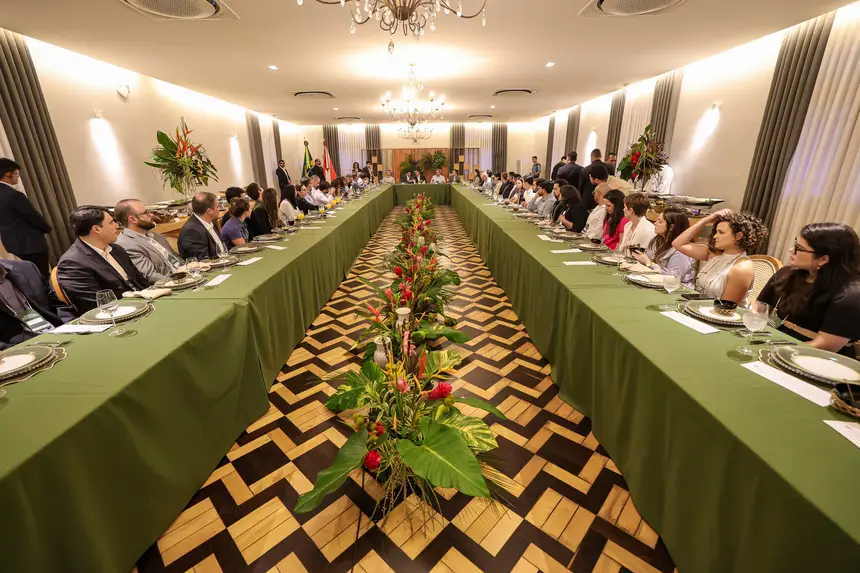
Helder Barbalho also stated that the goal is to ensure production quality while ensuring economic viability. “It is not to be the second largest herd in Brazil, it is to be the first herd for the quality we have here. Of soil, temperature, rainfall index, and productive expansion. And the role of the market is decisive to support and say: those who produce correctly have the support of those who buy and consume. In this way, we will achieve climate justice, environmental justice, and social justice.
José Otávio Passos, director of TNC Brazil, praised the initiative led by the State, recognizing its prominence. “The mobilization that has been done here is proof of the prominence, the pioneering spirit, the ambition of Pará, of you and your team. The pioneering spirit of Pará needs to be recognized. And the support we have been working on, together with several other actors who are here, to ensure the implementation of the cattle raising program, is a demonstration of this, it is a demonstration that we believe and trust in this ambition that you have led in recent years.”
The coordinator of the Pará Alliance for Meat, Francisco Victer, emphasized support for the state policy. “It is a large state, with great challenges, great responsibilities. And the governor recognized the size of the responsibility and the opportunity we have and challenged us to work together, government, non-governmental organization, our own representations, so he called everyone to compose this movement in favor of improving quality and bringing along the issue of managing productive activity. So, we are participating naturally, with great determination.”


